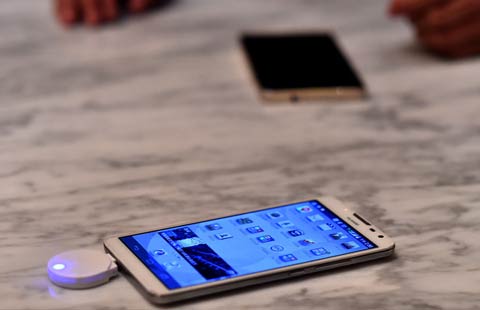Draghi stimulus to get Europe going
(Agencies) Updated: 2015-01-24 08:02

Political support
The ECB's calculations show the program will add 0.4 percentage point to inflation in 2015 and 0.3 percentage point in 2016, according to a second euro-area official. Consumer prices fell an annual 0.2 percent in December, compared with the ECB's mediumterm inflation goal of just under 2 percent. Both officials asked not to be identified as the details are private.
Those price projections signal the QE package needs to be complemented by other growth-boosting measures. Draghi has long maintained that euro-area governments must match the ECB's spending power with economic reforms to boost productivity, labor flexibility and investment. He underlined the same point when making his QE announcement.
"The ECB has done it, has taken it further with a very expansionary measure," Draghi told reporters in Frankfurt. "But it's now up to the governments."
He also kept up the pressure on the euro area's perennial worry: Greece. The program builds in the condition that the country will only benefit from asset purchases if the new government that the nation votes for on Sunday continues the agreed path of reform.
Janet Henry, chief European economist at HSBC Holdings Plc in London, said: "Draghi is only too aware that whatever the ECB does on the monetary policy side in an attempt to meet its mandate will not be successful unless governments do their bit. Fiscal policy is still needed to boost aggregate demand to prevent a further drop in inflation."
- First batch of official vehicles to be auctioned off in Beijing
- Wireless charging desk unveiled in Hangzhou
- Founder Securities says it can't contact chairman as govt probe goes on
- PMI signals industrial stabilization, analysts say
- Corn imports show steady growth
- Crude imports hit record in Dec
- Draghi stimulus to get Europe going
- Galaxy to spend $7.4b on Macao expansion
















